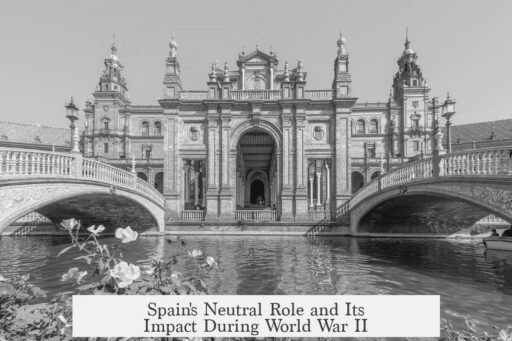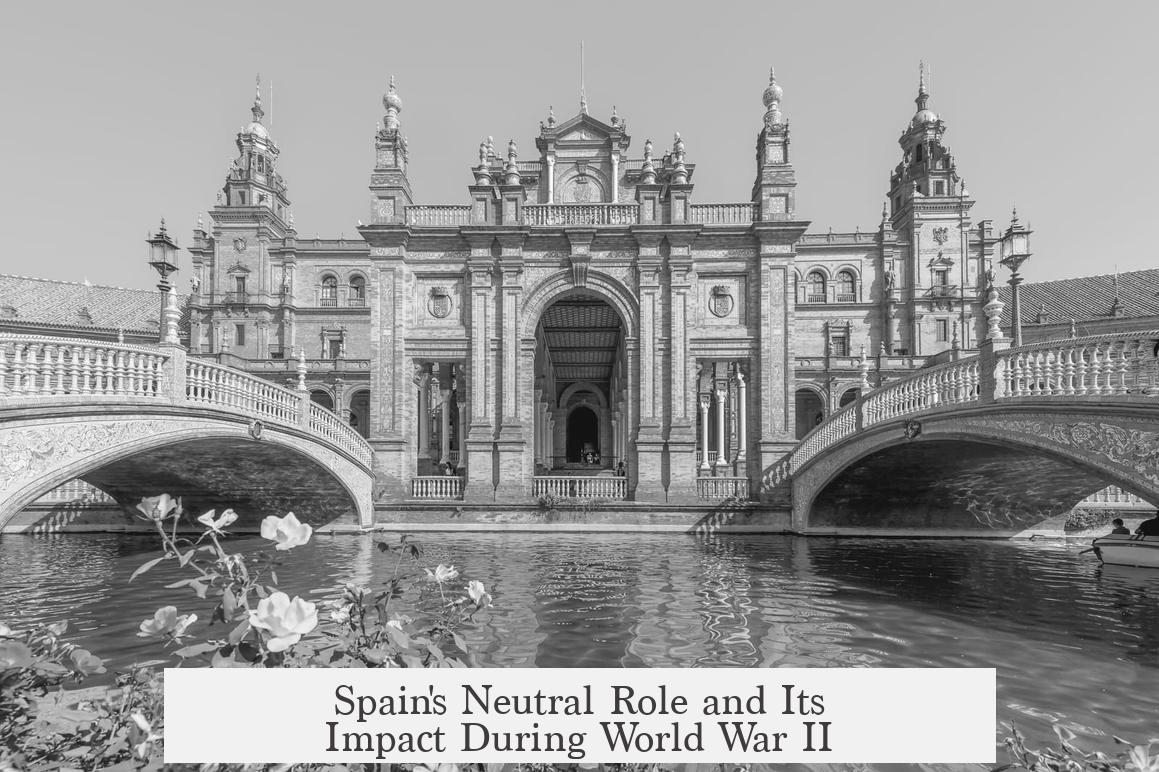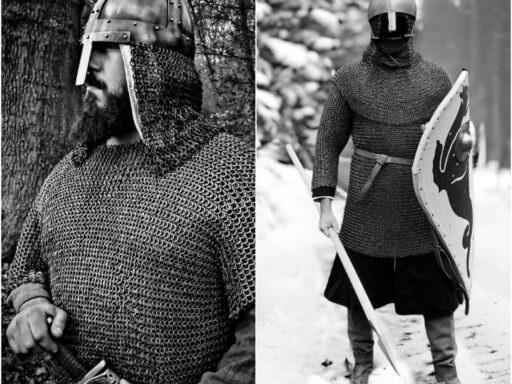Spain remained officially neutral during World War II, despite showing clear sympathies for the Axis powers led by Nazi Germany and Fascist Italy. Under General Francisco Franco, Spain maintained a position of non-belligerence without formally joining the conflict.
At the war’s start, Spain declared neutrality. Franco’s regime aligned ideologically with Germany and Italy but resisted entering the war due to Spain’s fragile condition after the devastating Spanish Civil War (1936–1939). Spain’s military and economy were weak, and the country depended heavily on imports, including from the United States. These dependencies limited Spain’s willingness to risk confrontation with Allied powers.
Although declared neutral, Spain provided limited support to Germany. Franco allowed the German Kriegsmarine access to Spanish coastal waters and the naval base in Cádiz. In June 1940, following the fall of France, Franco shifted Spain’s status from neutrality to non-belligerence, a stance that supported Axis interests without full engagement.
Franco made clear his wish to join the Axis war effort, but only under strict conditions communicated to Hitler. He demanded territorial concessions, chiefly Gibraltar, held by Britain since the 18th century, as well as parts of French North African colonies such as Morocco and Oran. Apart from these, Spain requested large supplies of fuel, weapons, and ammunition. Hitler refused these demands, viewing them as unreasonable.
- Hitler and Franco met once in Hendaye, France, in October 1940 to negotiate Spain’s entry into the war. Franco’s excessive demands caused the talks to fail.
- Hitler threatened possible territorial losses for Spain if negotiations collapsed, but no agreement was reached.
- Some historians debate whether Franco deliberately set impossible terms to avoid war involvement, balancing his pro-Axis sympathies with Spain’s vulnerability.
Operation Felix, a planned German attack on Gibraltar involving Spain, was canceled due to Franco’s fears. He worried a British military response could threaten Spanish territories like the Canary Islands. These strategic concerns contributed to Spain’s continued absence from direct combat.
Spanish volunteers joined Germany’s fight on the Eastern Front against the Soviet Union. After Operation Barbarossa began in 1941, Franco allowed the creation of the Blue Division (División Azul), composed of Spanish troops fighting alongside the Wehrmacht. The division operated until early 1944, emphasizing Spain’s anti-communist stance without committing the country fully to the war. Some Spaniards even served in the Waffen-SS units.
Spain repaid the debt owed to Germany and Italy from their aid during the Spanish Civil War through trade, dedicating 12% of its imports to Germany and 3% to Italy from 1939 to 1943. German forces tested new weapons at Guernica, a Basque town devastated during the civil war.
Franco’s regime also collaborated with Nazi Germany in darker ways. Thousands of Catalan refugees, considered opponents of Franco, were sent to Nazi death camps, as the regime denied their Spanish identity. This demonstrates the regime’s willingness to assist Axis powers despite official neutrality.
The Allied powers pressured Spain diplomatically and economically. British and American economic incentives and demands aimed to keep Spain neutral, especially preventing export of strategic materials like tungsten to Germany. In 1944, the US implemented an oil embargo to force Spain to withdraw the Blue Division and halt support to the Axis.
After the war, Spain’s ambiguous wartime role led to international isolation. Spain was excluded from the newly formed United Nations and faced diplomatic sanctions until the mid-1950s, primarily because of its connections to the Axis and Franco’s authoritarian government.
| Aspect | Summary |
|---|---|
| Official status | Declared neutral, shifted to non-belligerent in 1940 |
| Support to Axis | Allowed naval access and troop volunteers on the Eastern Front |
| Reason for non-entry | Excessive demands, weak post-civil war Spain, strategic concerns |
| Blue Division | Spanish volunteers fought against the Soviet Union (1941-1944) |
| Post-war impact | International isolation, excluded from UN membership until mid-1950s |
- Spain remained officially neutral but showed Axis sympathies under Franco.
- Franco demanded territory and supplies before joining the war; Hitler refused.
- Spain allowed German naval access and sent volunteers (Blue Division) to fight USSR.
- Spain’s weak condition and Allied diplomatic pressure kept it from full involvement.
- Post-war, Spain faced isolation due to its Axis ties and Franco’s regime.



